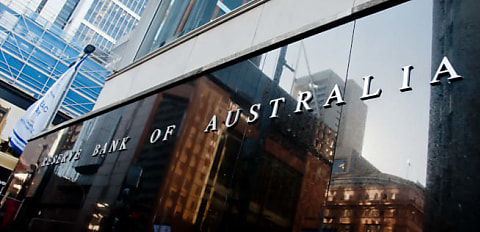Former Reserve Bank of Australia (RBA) governor Philip Lowe has confirmed in the RBA’s annual report 2023 that the central bank had incurred a loss of $6 billion during 2022/23, including valuation losses from higher bond yields as a result of interest rate rises over the past year.
This followed on from a $36.7 billion loss in 2021-22, largely due to the cost of pandemic stimulus, which tripled the central bank's balance sheet as it moved to support the economy.
The overall size of the balance sheet declined by $16 billion to around $600 billion, with the majority of the decrease in FY23 occurring in the final few months of the financial year.
Mr Lowe confirmed that the RBA continues to “operate with negative equity”, with the negative equity position reaching $17.7 billion as of 30 June 2023, up from $12.4 billion recorded a year earlier.
“This does not affect the bank’s operations or its ability to perform its policy functions,” Mr Lowe said.
“Nonetheless, the board will seek to restore the bank’s capital over time through the retention of future profits, rather than paying these as dividends to the government.
“The Treasurer has indicated his continued support for this approach, noting that a decision about retention of earnings is made each year.”
Indeed, Treasurer Jim Chalmers has endorsed the RBA’s approach to restoring its equity position over time.
The board noted in the annual report that it has communicated its “strong expectation to the Australian government future distributable earnings would be applied, in full, to offsetting the accumulated losses and restoring the balance of the Reserve Bank Reserve Fund (RBRF) to the board’s target”.
Since May 2022, the RBA has lifted interest rates by 400 bps, which has brought the official cash rate from historical lows of 0.1 per cent to 4.1 per cent as of October 2023.
The central bank raised interest rates in 10 consecutive monetary policy meetings, before briefly pausing in April 2023, which was subsequently followed by a further two hikes.
The RBA has held rates steady at 4.1 per cent since July 2023, however, the pending third quarter Consumer Price Index (CPI) data - set for release by the Australian Bureau of Statistics (ABS) on 25 October - is expected to be the determining factor in the RBA’s decision during the November monetary policy meeting.
“The board acknowledges that higher interest rates are having an uneven effect across the community and are contributing to a painful financial squeeze for some households,” Mr Lowe stated.
“That said, allowing high inflation to persist would lead to more financial stress in future and damage the longer-term functioning of the economy.”
Low tolerance for inflation poses hike threat
The minutes of the October monetary policy meeting released on 18 October revealed a shift towards a more hawkish attitude as it noted that it has “a low tolerance for a slower return of inflation to target than currently expected”.
It confirmed that future interest rate rises would largely depend on incoming data (the aforementioned 3Q23 CPI data) and how it would “alter the economic outlook and evolving assessment of risks”.
The shift in tone was noted by bank economists, suggesting that the RBA’s patience with high inflation for a longer period of time is beginning to wear thin.
“Our view is that a rate rise in November would require an uncomfortably high CPI print, possibly combined with some sign of strength in the labour market,” ANZ head of Australian economics Adam Boyton said.
“Pending the upcoming labour market and inflation data, we continue to expect the cash rate to remain at 4.1 per cent.
“Risks of RBA action appear to be rising, however.”
[RELATED: RBA’s ‘low tolerance’ for inflation increases risk of hikes: economists]

